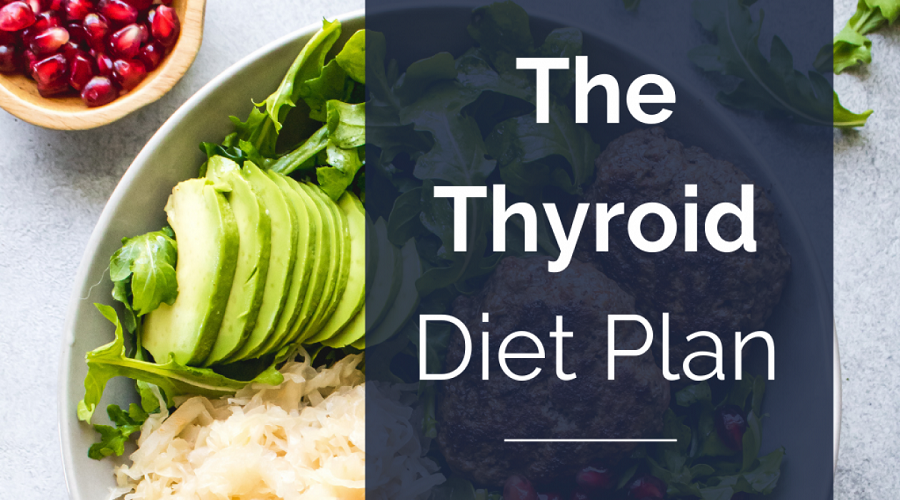
The thyroid, a little gland at the foundation of the neck shaped like a butterfly, secretes the hormones that cause the body to produce thyroid hormones. These hormones have an impact on both the body’s metabolic rate and the rate at which energy is produced. Thyroid not only promotes brain development and fertility but also aids in mood swings, hair growth, and the regulation of body temperature, weight, and heart rate. But when the gland malfunctions (hypothyroidism) or overproduces hormones (hyperthyroidism), a person may face a number of issues.
However, modest dietary, nutritional, and lifestyle adjustments can support thyroid healing. The majority of medical professionals only measure thyroid-stimulating hormone (TSH), T3, and T4, which provides only a partial image of the thyroid. Actually, most of the time, even the explanation of this examination is inaccurate. They recommend thyroxine medicine, which can have side effects such as bone loss, palpitations, anxiety, and insomnia. In addition to these tests, evaluations of TG and TPO (thyroid antigens) are necessary, as well as related issues such as food allergies, heavy metal toxicity, gluten intolerance, and deficiencies in zinc, vitamin D, vitamin A, selenium, and omega-3 fats.
An autoimmune condition called Hashimoto’s disease arises when your thyroid is attacked by the immune system. When your immune system is working properly, it can distinguish between foreign substances and your own cells. However, when you have an autoimmune disease, your own cells begin to attack other body cells. When the thyroid is injured, it is unable to produce enough thyroid hormones.
Diet is a major contributor to inflammation, thus controlling it is essential to protecting the body and minimizing flare-ups. Refined flour, processed salt, refined sugar, and processed oils are examples of dangerous food items that have been demonstrated to promote inflammation and should be avoided.
Stress severely impacts thyroid function, causing elevated cortisol, elevated inflammation, decreased testosterone, elevated TSH, and extremely low T3.
Relation between Thyroid and weight loss according to weight loss dietitians in Bihar
The endeavor of achieving weight reduction can prove to be quite arduous when one finds themselves afflicted with a thyroid ailment, potentially stemming from factors such as Hashimoto’s thyroiditis, cancer of the thyroid, adverse effects of medication, insufficiency of iodine (although less probable within the confines of the United States), the presence of goiter, surgical extraction of the gland that houses the thyroid, treatment for hyperthyroidism, or a multitude of other plausible circumstances.
Approximately 50% of individuals afflicted with hypothyroidism encounter a notable increase in body mass. The majority of individuals tend to acquire a modest increase in weight, typically ranging from 5 to 10 kilogrammes. Certain individuals of the female gender may exhibit a propensity for experiencing a greater degree of weight gain, particularly in cases where their hypothyroidism manifests in a severe manner. Whilst the predominant cause of the increase in body weight primarily stems from heightened retention of sodium and water, it is plausible that a portion of said weight gain could be attributed to an augmentation in adipose tissue accumulation.
Whilst it is indeed acknowledged that weight gain is a common occurrence in individuals afflicted with hypothyroidism, it is imperative to recognize that if one has experienced a substantial increase in body mass, amounting to no less than 20 pounds, it is highly plausible that the thyroid gland is not the sole factor contributing to this phenomenon. It is prudent to undergo regular thyroid examinations, yet it is equally imperative to maintain vigilance over one’s dietary patterns, stress thresholds, and levels of physical exertion.
The relationship between weight gain and thyroid function
The precise molecular cause of the relationship between hypothyroidism and obesity (and hyperthyroidism and weight loss) is unclear. Taking everything into account, a few elements may help to explain the correlation in cases of poor thyroid function.
According to a dietitian in Purnia, the Thyroxine (T4) and triiodothyronine (T3), the two most active thyroid hormones, circulate throughout the body and affect your metabolism by interacting with your:
- Muscle cells and fat
- Pancreas and liver Hypothalamus
Typically, thyroid hormones help the body break down fat and support the pancreas and liver in their efforts to metabolize and store calories for use as fuel. Additionally, these hormones support the body’s muscles in their energy utilization. Furthermore, the hypothalamus, the brain’s regulator of thyroid hormone, reduces the amount of thyrotropin-regulating hormone (TRH) secreted when the body’s thyroid hormone levels are sufficient.
Your metabolism is regulated by T3 and T4.
- pulse rate
- digestive process
- Control of muscles
- upkeep of the bones
- growth of the brain
Reduced thyroid function or a lower level of hormones produced by the thyroid can interfere with these functions. In addition to energy-related complaints, the body stores calories as calories, which is particularly difficult to eat and digest.
Gaining weight can result from even a small alteration in thyroid function. Why a thyroid that is underactive contributes to weight gain or inhibits weight loss is not well understood. They believe it is because:
- reduced metabolic rate.
- Less energy means less movement.
- alterations in how your body burns off glucose (sugar) and processes fat.
- a propensity for tissues to hold onto fluids.
Hypothyroidism-related weight gain is primarily associated with salt and fluid intake rather than body fat.
The connection between cruciferous vegetables and hypothyroidism
You must understand the connection between cruciferous vegetables (like Bok choy, Broccoli Brussels, sprouts, Cabbage, Cauliflower, Collard greens, Kale Kohlrabi, Mustard greens, Turnips, and turnip greens) and hypothyroidism, including the potential consequences on your thyroid if you should avoid them, and how to balance the advantages and disadvantages of consuming them. The high concentration of glucosinolates, sulfur-containing molecules that give these plants their distinct fragrance, is only one example of how uniquely unique they are chemically.
However, The best thyroid diet plan clinic – the glucosinolates and other substances included in these vegetables are regarded as goitrogens, which implies they may obstruct the creation of thyroid hormone, mostly by interfering with your thyroid’s utilization of iodine. Your body needs iodine for the thyroid to produce thyroid hormone normally, therefore if your body isn’t getting enough iodine or your thyroid isn’t getting enough iodine, your thyroid hormone levels will drop.

Hello My Name is Dt. Ruksana Azhar and I am a certified dietician and providing online & offline services for Weight Management, PCOS/PCOD Management, Diabetes Management , etc. I have 12+ years of experience in the Apollo Hospital Delhi , Max Super Specialty Hospital Delhi, Lilavati Hospital Mumbai and VLCC healthcare Mumbai. I loves to write healthcare and lifestyle related blog. My favorite part of being a doctor is the opportunity to directly improve the health and wellbeing of my patients and to develop professional and personal relationships with them.



